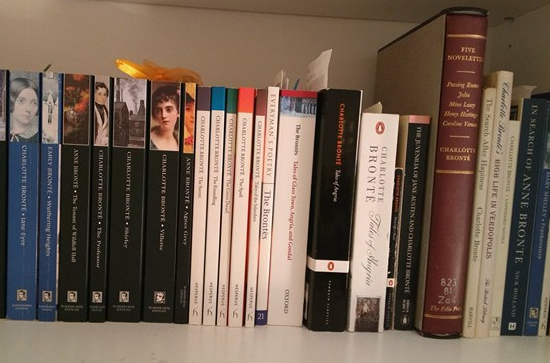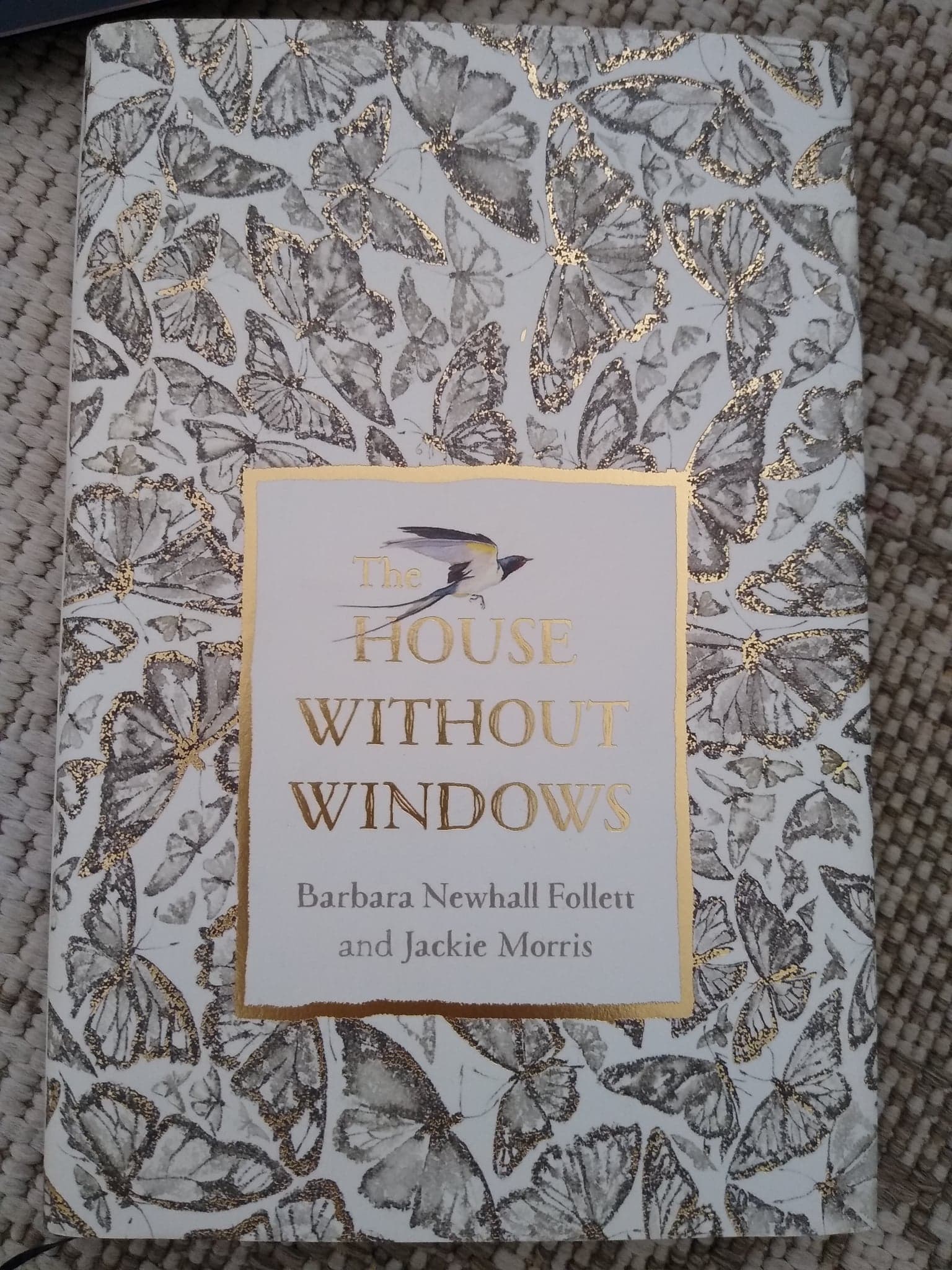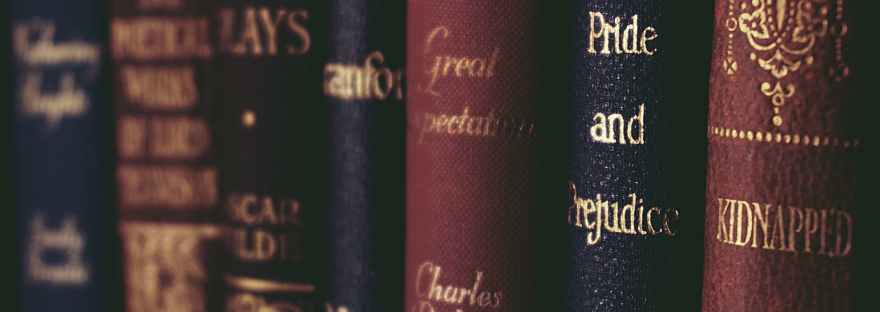Now that we’re pretty much halfway through 2020 I thought I’d share with you an update on my 2020 reading challenge. I’ve set myself another Goodreads challenge which is to read 35 books this year. So far it’s going well and I’ve read 22 out of 35 books (thank you lockdown) so I’m more than halfway there. But what of my other challenge and the tasks I set myself? How am I doing with them. Here is a reminder of what I want to achieve, and what I’ve managed so far. I’d love to know how you’re getting on with your reading challenge.

- A Book Published in the year 2020
I’ve ticked this one off my list thanks to Suzy Krause’s second novel, Sorry I Missed You. It was a bit of a letdown after her wonderful debut offering, Valencia and Valentine (2019). The quirkiness of the latter just didn’t transfer to the former for me personally and I found I wasn’t madly interested in the three lead characters who are recovering from various relationship break ups and trying to solve the mystery of who left a note in their shared mailbox. There are a few too many plot threads and not enough likeable characters after a solid opening, and the ending bugged me so much I can’t even tell you. I felt like throwing the book out of the window in Silver Linings Playbook fashion.
- A Book by a Well Known Author Whose Work You Haven’t (but Really Should Have) Read Before
This year I finally read Mary Poppins (1934) by P.L. Travers. Considering everyone loves the Disney film version and I adore Saving Mr. Banks (2013), the film biopic of the author’s life, I really don’t have any excuse for never having picked this one up before. Therefore I really should have read Travers’ work before and I’m ticking another challenge off my list. The verdict on the book though? A solid read that I wasn’t overly fond of. It’s more of a series of vignettes rather than one long narrative working towards the conclusion of any particular plot line. It’s a bit disjointing at times, and some of the episodes don’t feature much of Mary Poppins or the Banks children. Mary Poppins herself is a rather two dimensional and unpleasant character, and one can only wonder exactly why the children warm to her as they do. Despite all of this, it was an easy and whimsical read on my morning commute to work.
- A Book Published Posthumously
This is one that I haven’t achieved yet and I’m honestly not sure what to choose. I think I may need to Google it for ideas. I could get around it by selecting a piece of the Brontë juvenilia which was obviously published after their deaths, however, I’d rather not as this seems a bit like cheating and the whole point of this challenge is to open up my reading.
- A Book Featuring an Amateur Detective
Another task done and dusted thanks to Agatha Christie. Although I’ve read Miss Marple books before, I’d never read the first title in the series, The Murder at the Vicarage (1930). Although I prefer the Poirot stories (which I’m yet again devouring in 2020), it’s hard to find a bad Agatha Christie novel. I really enjoyed Miss Marple’s first full length adventure and it’s made me want to read more Marple stories assuming I can tear myself away from Poirot for longer than a week. I’m pleased to report that the task I set myself in 2019 of reading a short story collection, which was hampered by my choosing the complete collection of Poirot stories, has also finally been completed. Speaking of short stories, Agatha Christie, and amateur detectives, I also read her collection of curious tales called The Mysterious Mr. Quin (1930 – she was busy that year) which features the enigmatic Mr. Quin and his associate Mr Satterthwaite, a fussy little socialite who snoops enough to qualify as an amateur detective in my opinion. It’s an intriguing collection which is both typical and unusual for Agatha Christie and there’s more of a supernatural feel to these tales.
- A Retelling of a Classic
I’ve read two titles this year that could qualify for this. First there was Murder at the Old Vicarage (1988) by Jill McGown which is a sort of retelling of Miss Marple’s first adventure discussed above. There’s a murder, a small village, a detective, and a family fallout but although I enjoyed it more than I thought I would, it’s not Christie standard and besides the murder taking place in the vicarage, it bears little resemblance to its namesake. Not a bad read and I think I may track some more books down from this series in the future. The other book that could qualify for this is a strange retelling of Charlotte Brontë’s 1853 novel Villette (2016), a play by Linda Marshall Griffiths. I admit, I really didn’t enjoy or understand this one. Lucy Snowe is a clone and survivor of a pandemic, there are sci-fi like settings, and an archaeological dig whilst people search for the Lady of Villette which I think are the remains of someone from some point in time who may have been vaguely important. Or not; I just couldn’t follow this one at all.
- Two Books that Share the Same Title
The titles discussed above could both technically qualify for this one. The slight change of wording of the Jill McGown book means I’ll opt for the Villette retelling to tick this one off my list.
- A Classic of Children’s Literature
I had this challenge on my list last year because it doesn’t matter how old you are, children’s literature can always cast a spell on you. Last year it was Frances Hodgson Burnett’s The Secret Garden (1911) which did so and this year it was her wonderful and magical A Little Princess. This is perhaps not as well known as the former but it deserves to be. It’s the story of Sara Crewe who is sent to school in England by her father after growing up in India. Sara is the prize pupil due to her wealth, but when disaster strikes and her fortune is lost, she must rally against the injustices of life and her cruel headmistress and learn how to survive in a position that is both brand new and unexpected. First published as a novel in 1905, it’s based on Burnett’s short story “Sara Crewe: or, What Happened at Miss Minchin’s”, which was serialized in St. Nicholas Magazine from December 1887, and published in book form in 1888. It’s also thought to have been inspired by Charlotte Brontë’s unfinished novel Emma and this makes it extra special for me. It’s possibly my favourite read of the year so far.
- A Debut Novel
I spent a few days in the company of Christian Hayes’ The Fat Detective (2019) last month which I believe was his debut novel. Another solid read which is a sort of modern and British take on classic American detective fiction. Eugene Blake is the wannabe detective who quits his job to try to become an old-fashioned private eye. There’s a mysterious woman, a missing man, a murder and a shadowy underworld but also a messy ending. Another debut novel I read in 2020 was The Manual of Detection (2009) by Jedidiah Berry. It’s a bit Kafaesque as a clerk wakes up one day to find himself promoted within a mysterious organisation after the disappearance of one of his superiors but is then accused of the murder of another. It’s entertaining enough but the ending could be better and the characters a bit more fully realised. It’s not really one that sticks in the memory and I’m struggling to remember who did what, why, and what the ending was already.
- A Piece of Non- Brontë Juvenilia
After learning about child prodigy Barbara Newhall Follett a few years back, I began the year by reading her wonderful novel (another debut technically) The House Without Windows (1927), written when she was just 12 years old. It’s a beautiful story about a child named Eepersip who runs away from her parents’ house to live in the natural world (the house without windows), making friends with animals and living on berries and roots as she travels from place to place. It’s magical and poignant as she must outwit her parents and other adults, and strangely relevant to 2020 as the main character just wants to be free from the restrictions of a society in which she feels the walls are closing in on her. Additionally, I also read The Gipsy Dancer & Early Poems by Australian author Dorothy Hewett. It’s a magical and whimsical collection that gives a glimpse into a child’s view of Australian culture in the first half of the twentieth century.

- A Piece of Brontë Juvenilia
The wonderful thing about the Brontë juvenilia is that it seems to be neverending and there are still so many pieces I have only skimmed or haven’t read at all yet. So far, the only new piece I think I’ve read this year is Charlotte Brontë’s tale Lily Hart (1833) which I have previously flicked through in the name of research. Part of her Glass Town world, the tale features a poor but respectable mother and daughter who come to the aid of a wounded soldier after his friend leaves him in their care. Lily falls for the solider but his sudden departure leaves her heartbroken, as does the death of her mother a short time later. In true fairy tale style, Lily is later re-united secretly with the soldier and his friend but must live in a secluded place away from society and his family. It is not until they are accidentally discovered by the soldier’s family that he is revealed to be John, Prince of Fidena. His father is furious but a word from his friend, who turns out to be the Marquis of Douro settles everything and they live happily ever after. A nice little tale from Charlotte in which you can see she is attempting to experiment more with genre, and also with longer pieces in the search for her own voice.
- A Brontë Biography
I’ve stalled on this one a little. I’ll blame Poirot again. I’ve started Nick Holland’s Crave the Rose (2020), a biography of Anne Brontë. It will be finished and reviewed before long. It seemed fitting to pick something about Anne during her bicentenary and I encourage you to do the same.
- A Piece of Brontë Inspired Fiction
Earlier this year I read Glass Town by Isabel Greenberg, an adaptation of the Brontë juvenilia. It has the most glorious artwork and is true to the spirit of the original stories. Its graphic novel style helps to capture the madcap nature of the source material and is packed full of adventures. Greenberg wisely selects a handful of the better known characters to focus on and tells their/her story, for we are warned on the opening page, this is not the Brontës’ world, it is Greenberg’s. As wonderful as the concept of Glass Town as a graphic novel is, as a purist, the additions/changes/embellishments were difficult for me to read with pleasure (the voice in my head was screaming what actually happened in the Brontës’ world every time there was a change). Having said that, it is a very enjoyable read that I hope will introduce more people to the wonderful worlds of Glass Town, Angria, and Gondal.
- 3 Old Favourites: Jane Eyre; The Tenant of Wildfell Hall; Wuthering Heights.
This is one I haven’t yet completed. I’ve decided that next year will be a year of re-reading favourite books so if I don’t manage it this year, I’m not too fussed.
Here is a list and ratings for the 22 books I’ve read so far in 2020 for those who are interested. Once again, thanks for reading.
The House Without Windows by Barbra Newhall Follett – 4 stars
Wakenhyrst by Michelle Paver – 5 stars
Glass Town by Isabel Greenberg – 3 stars
Murder at the Vicarage by Agatha Christie – 4 stars
Murder at the Old Vicarage by Jill McGown – 3 stars
The Bookshop by Penelope Fitzgerald – 4 stars
Charlotte Brontë’s Villette Re-Imagined by Linda Marshall Griffiths – 1 star
Hercule Poirot Complete Short Stories by Agatha Christie – 5 stars
Mary Poppins by P.L. Travers – 3 stars
And Then There Were None by Agatha Christie – 4 stars
The Mystery of the Blue Train by Agatha Christie – 4.5 stars
Peril at End House by Agatha Christie – 4 stars
The Manual of Detection by Jedidiah Berry – 3 stars
The Greatest Gift by Philip Van Doren Stern – 4 stars
The Fat Detective by Christian Hayes – 3 stars
A Little Princess by Frances Hodgson Burnett – 5 stars
The Gipsy Dancer & Early Poems by Dorothy Hewett – 4 stars
Lord Edgeware Dies by Agatha Christie – 4.5 stars
Sorry I Missed You by Suzy Krause – 2.5 stars
Appointment with Death by Agatha Christie – 4.5 stars
The Mysterious Mr. Quin by Agatha Christie – 4 stars
Three Act Tragedy by Agatha Christie – 4 stars
In Loving Memory of Bob the Bichon (2007-2019)
A lover of life, the Brontës, and Haworth who knows that I’m just going to write because I can’t help it.
By Nicola F. a.k.a. The Brontë Babe.
Thanks for reading. I’d love it if you stopped by The Journal of Juvenilia Studies where you can read my essay, “Autobiography, Wish-Fulfilment, and Juvenilia. The ‘Fractured Self’ in Charlotte Brontë’s Paracosmic Counterworld”.
Please do not copy, share, or use the images from this post without seeking permission first.











I love ‘eavesdropping’ on other people’s reading lists. Thanks for sharing this! I also really loved Wakenhyrst — what a story! And so much atmosphere. And I read The Manual of Detection ages ago and really enjoyed it. I’ve been thinking about a re-read…
LikeLiked by 1 person
Oh yes, Wakenhyrst was brilliant. I can’t believe I’ve found someone else who has read The Manual of Detection!
LikeLike
I don’t remember how I found it… maybe at a used bookstore when I lived in Austin, TX. I love the cover, so that might have been the deciding factor 🙂
LikeLiked by 1 person
I think the cover did it for me too 😊
LikeLike
The Little Princess is set by for reading this summer, and I’m looking forward to it very much, not least for the Brontë Emma connection. I liked your other categories too, some of which I may try to emulate!
I largely agree with you about the Travers book when you assess it as a series of vignettes, but I keep thinking I’ve missed something. Poppins’ character is clearly an archetype: I think I possibly preferred Christianna Brand’s Nurse Matilda (the Nanny McPhee films were based on it) for having more of an overarching plot, even though it was published a few decades later. https://wp.me/p2oNj1-3Nv
LikeLiked by 1 person
I loved A Little Princess. It really was magical. I think I will read Nurse Matilda. I’ve been toying with it ever since the Nanny McPhee films were out.
LikeLiked by 1 person
I remember you recommending The Little Princess and Valencia and Valentine. I must get round to seeking them out. X
LikeLiked by 1 person
Oh yes, they’re fab 😁 x
LikeLike
The Villette re-telling sounds bizarre, I think I’ll pass on that one. I agree about your thoughts on Mary Poppins, I loved the film as a little girl, but never warmed to the book. Mary Poppins herself seemed too stern, and lacked the warmth and empathy of the Julie Andrews version. From my memory, I also found the book a little too fragmented to hold my attention.
LikeLiked by 1 person
I just couldn’t follow the Villette retelling at all. Ambitious but for me it didn’t work. Fragmented is a good way to describe Mary Poppins. It’s not bad but I can’t say I’d recommend it. Thanks for reading 😊
LikeLike
Great post! I’ve fancied reading Wakenhyrst for a while so will definitely seek it out now.
LikeLiked by 1 person
It’s really good. I found it completely by accident but couldn’t put it down 😁
LikeLike
As always, I enjoyed a little peek into what you have been reading and how you found it. Just lately I’ve been craving some children’s books so will be adding to my reading list “The House Without Windows” and “The Little Princess”. One of the first books I read this year was Nick Holland’s “Crave The Rose”. I loved it. It is in three parts and second and third part are particularly interesting. Looking forward to your review of this book. x
LikeLiked by 1 person
Thanks Vesna. I started reading it when I visited Scarborough in February. I’m definitely going to finish it soon . I can’t tell you how much I adored Princess. I’ve recommended it to so many people. I just hope nobody is disappointed 😊 x
LikeLike